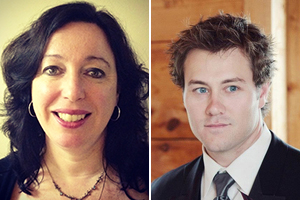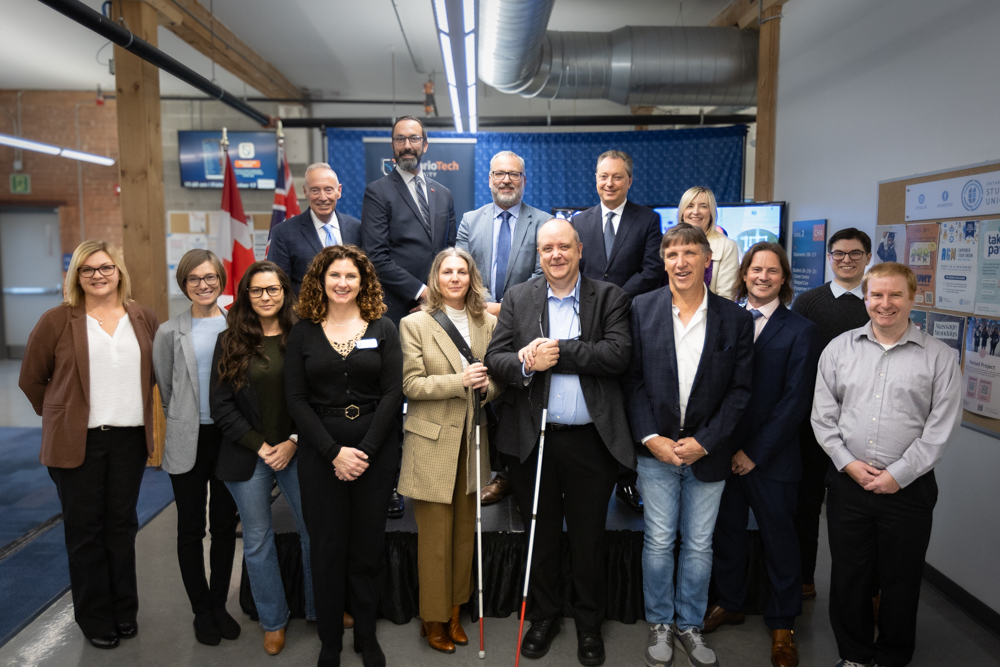UOIT Kinesiology researchers awarded two-year grant
February 21, 2014

Research involving neck pain and its correlation to upper limb mobility at the University of Ontario Institute of Technology’s (UOIT) Faculty of Health Sciences has received international recognition, thanks to a two-year grant from the Australian Spinal Research Foundation.
Dr. Bernadette Murphy, Professor and Kinesiology Lead, and Dr. Michael Holmes, Assistant Professor, were awarded $78,300 for a study entitled The effect of chiropractic care on sensorimotor integration and its relationship to neck and upper limb function. Dr. Murphy and Dr. Holmes are collaborating on the study with Dr. Heidi Haavik, Director of Research, Centre for Chiropractic Research, New Zealand College of Chiropractic.
Research has shown chiropractic treatment can enhance balance, co-ordination, posture and reaction time. However, researchers have a limited understanding of how these improvements happen. The UOIT researchers believe part of the reason chiropractic care can have these effects is by restoring normal communication between the joints and muscles of the neck and the cerebellum, the part of the brain that co-ordinates and regulates muscular activity. Neck pain and muscle overuse injuries often begin in the workplace. If these injuries lead to decreased upper limb function, it could lead to economic and health implications.
Dr. Murphy and Dr. Holmes hypothesize that neck problems can affect timing and co-ordination when a patient moves and performs tasks. The joints and muscles of an individual’s neck send distorted feedback to the brain, inhibiting the ability to correctly blend information from the brain and body, which then leads to poor control of upper limb movement.
The grant combines Dr. Murphy’s expertise in neuroscience and neck function with Dr. Holmes’s knowledge of upper-limb biomechanics. The funding will help purchase new equipment, which will assist the researchers to accurately track small errors in movement and collect wireless signals about muscle activation patterns. The researchers will be able to advance their work in measuring the impact of neck pain on the performance of upper limb tasks and how this is improved by chiropractic treatment.
”Congratulations to Bernadette and Michael on their tremendous accomplishment,” said Dr. Ellen Vogel, Dean, FHS. “This award will increase the visibility of their work internationally and in turn, will help them to build strategic research alliances around the globe.”



